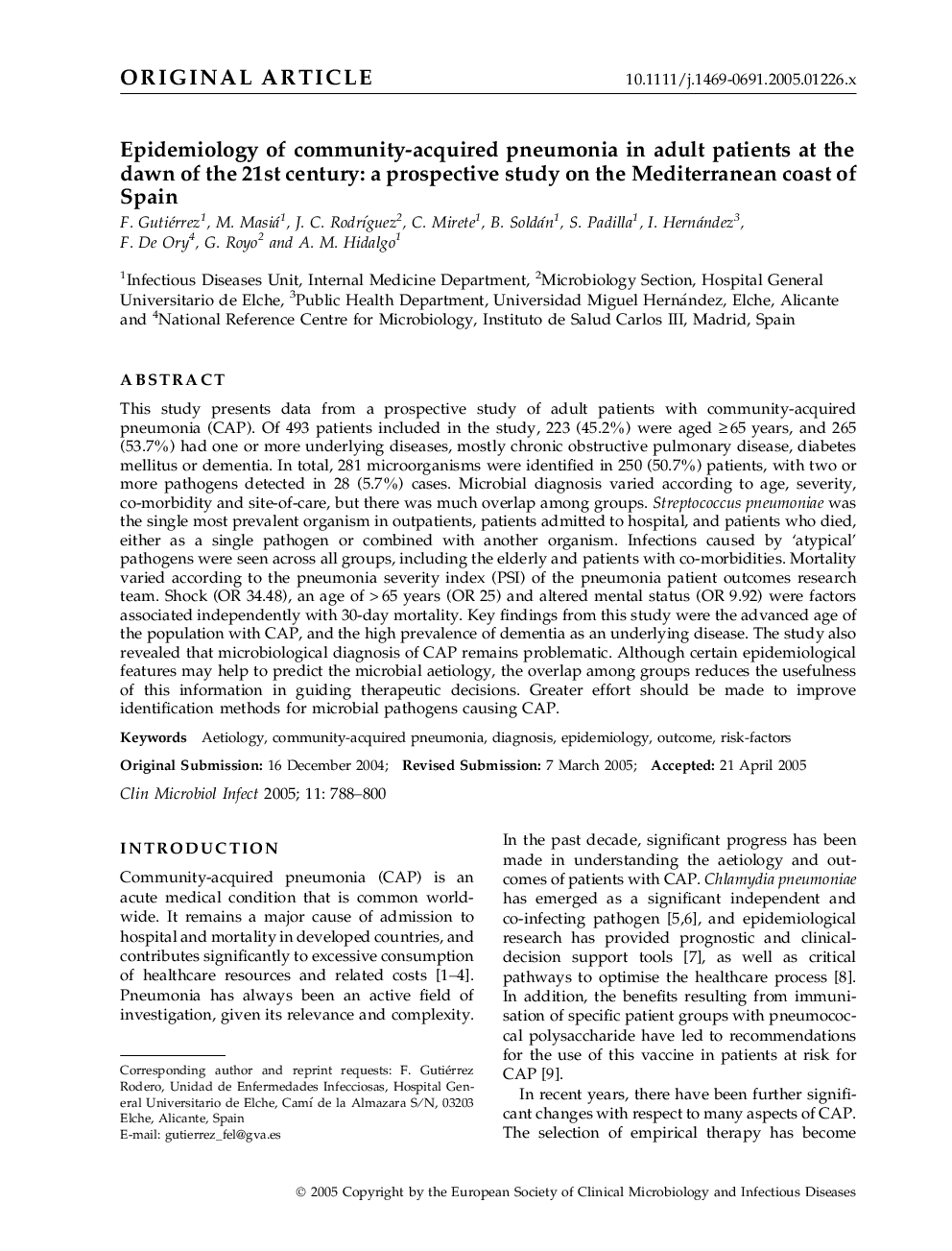| Article ID | Journal | Published Year | Pages | File Type |
|---|---|---|---|---|
| 9276015 | Clinical Microbiology and Infection | 2005 | 13 Pages |
Abstract
This study presents data from a prospective study of adult patients with community-acquired pneumonia (CAP). Of 493 patients included in the study, 223 (45.2%) were aged ⥠65 years, and 265 (53.7%) had one or more underlying diseases, mostly chronic obstructive pulmonary disease, diabetes mellitus or dementia. In total, 281 microorganisms were identified in 250 (50.7%) patients, with two or more pathogens detected in 28 (5.7%) cases. Microbial diagnosis varied according to age, severity, co-morbidity and site-of-care, but there was much overlap among groups. Streptococcus pneumoniae was the single most prevalent organism in outpatients, patients admitted to hospital, and patients who died, either as a single pathogen or combined with another organism. Infections caused by 'atypical' pathogens were seen across all groups, including the elderly and patients with co-morbidities. Mortality varied according to the pneumonia severity index (PSI) of the pneumonia patient outcomes research team. Shock (OR 34.48), an age of > 65 years (OR 25) and altered mental status (OR 9.92) were factors associated independently with 30-day mortality. Key findings from this study were the advanced age of the population with CAP, and the high prevalence of dementia as an underlying disease. The study also revealed that microbiological diagnosis of CAP remains problematic. Although certain epidemiological features may help to predict the microbial aetiology, the overlap among groups reduces the usefulness of this information in guiding therapeutic decisions. Greater effort should be made to improve identification methods for microbial pathogens causing CAP.
Related Topics
Life Sciences
Immunology and Microbiology
Microbiology
Authors
F. Gutiérrez, M. Masiá, J.C. RodrÃguez, C. Mirete, B. Soldán, S. Padilla, I. Hernández, F. De Ory, G. Royo, A.M. Hidalgo,
